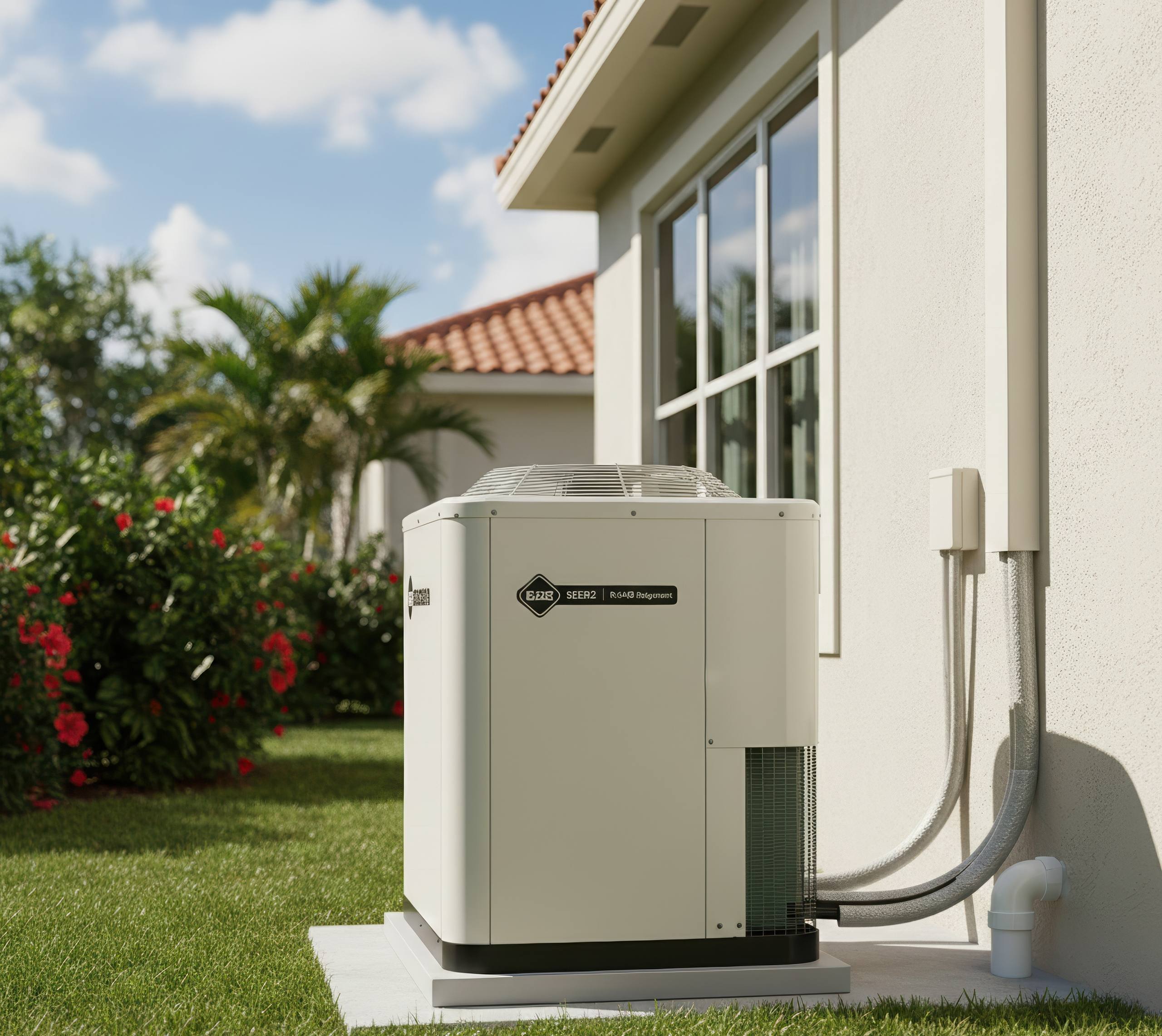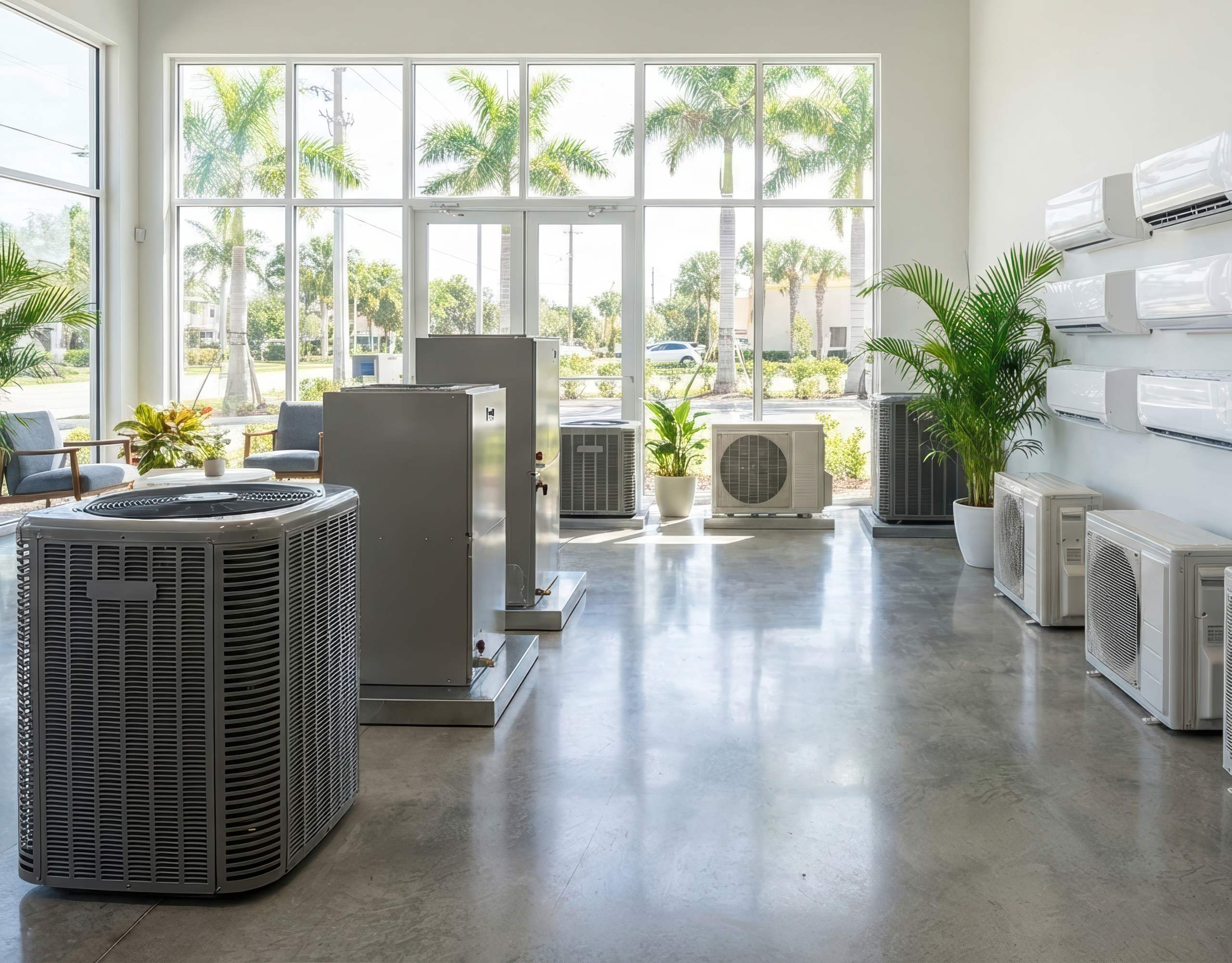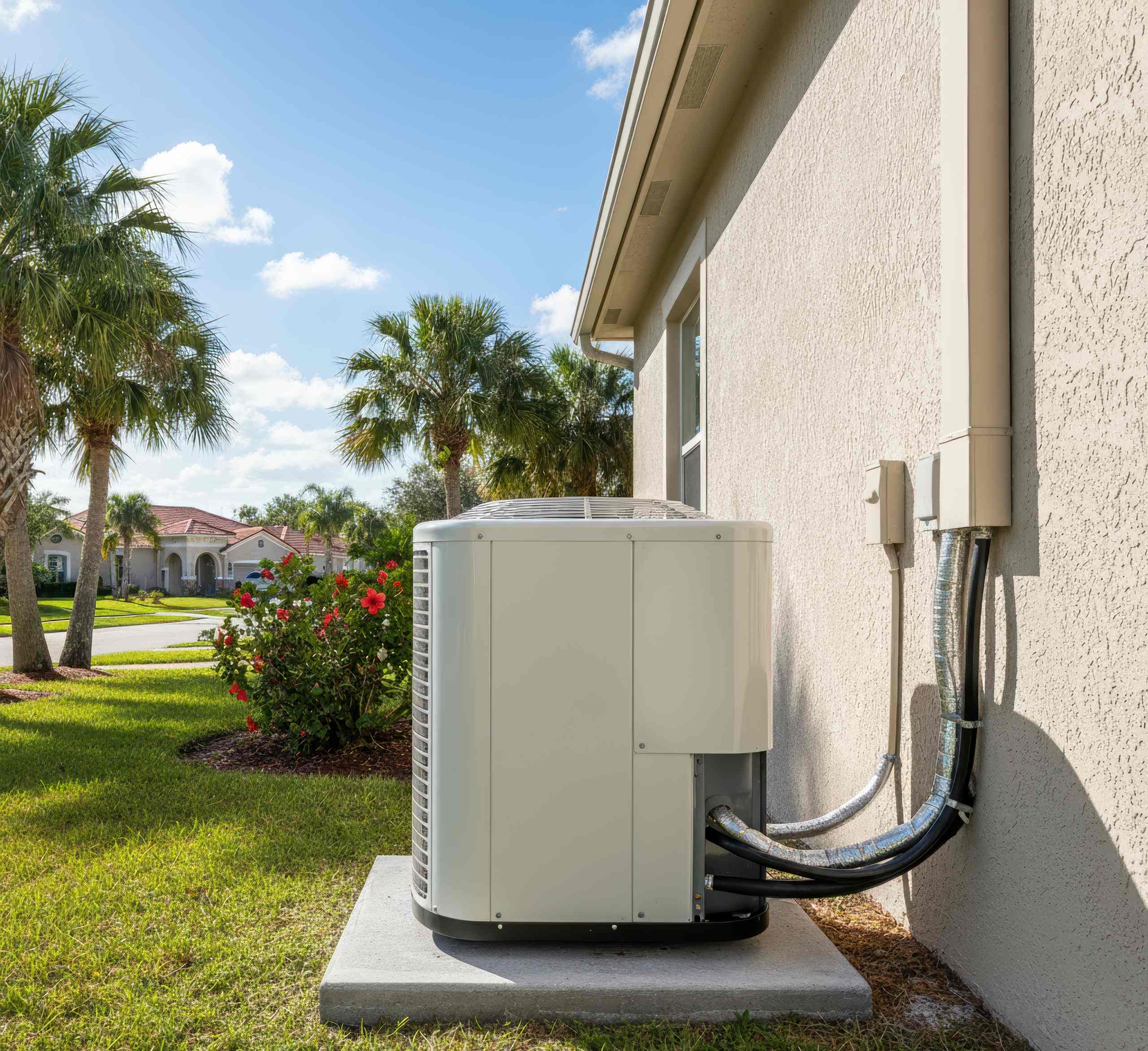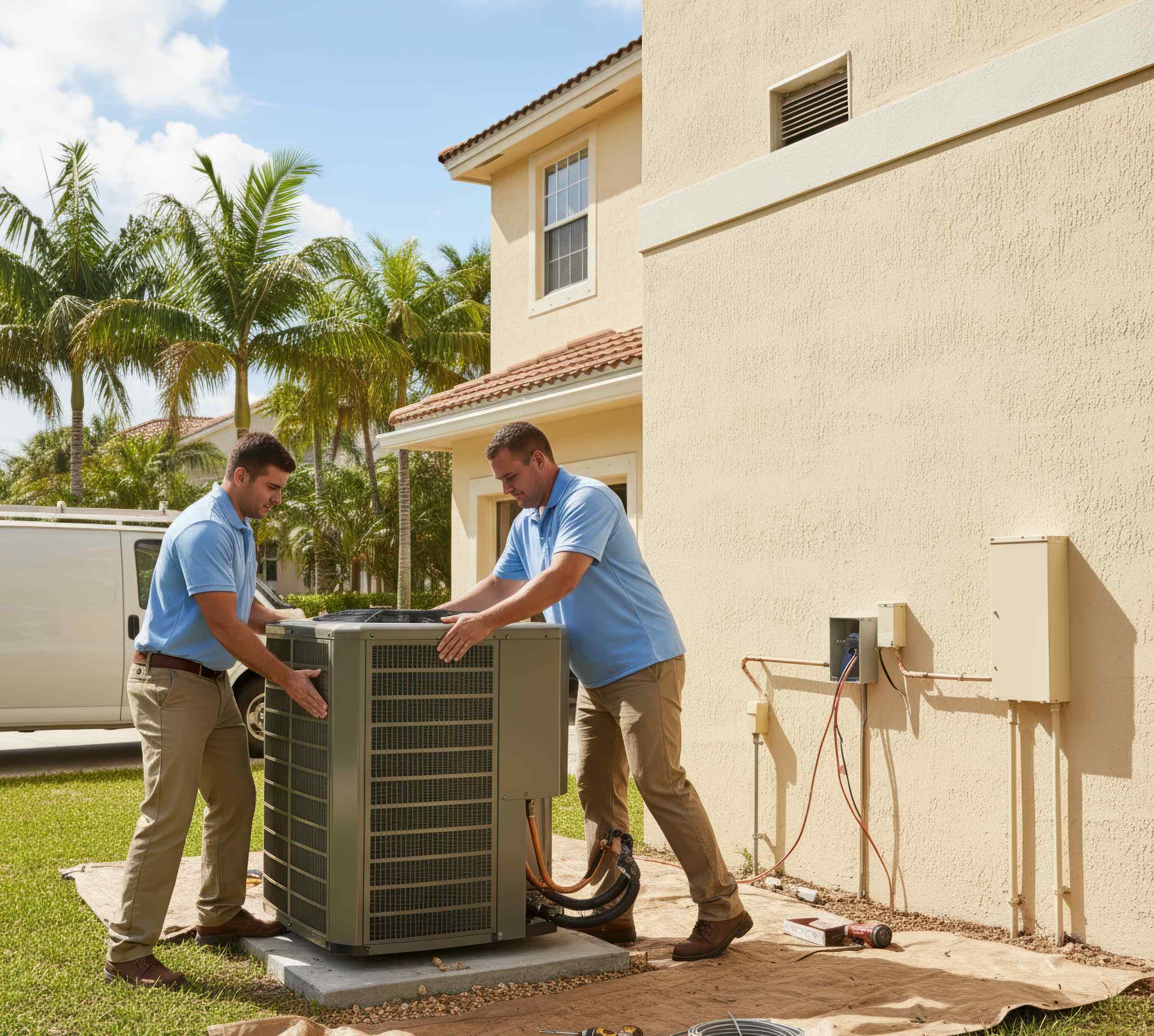Modern, high-quality AC systems are real workhorses and can run and run without too much attention…until, suddenly, they stop working one day out of neglect!
And you sit there and sweat in the summer heat!
An AC tune-up would likely have prevented that. Regular AC maintenance checks should be part of every Florida homeowner’s annual calendar and can extend the life of units, preventing issues and costly repairs further down the line.
If you can’t remember the last time that you booked a tune-up , you could be asking for trouble. It’s amazing what a few tweaks, tests and some cleaning will do for the long-term health and overall performance of your AC system.
But what are the signs you need an AC tune-up? Learning to recognize AC issues early and calling your maintenance professionals out can help you beat the heat and stay comfortable all year round.
Here, we cover what you can expect from an AC tune-up and the main signs your system is ready for a visit from your HVAC professionals…
What is an AC tune-up?
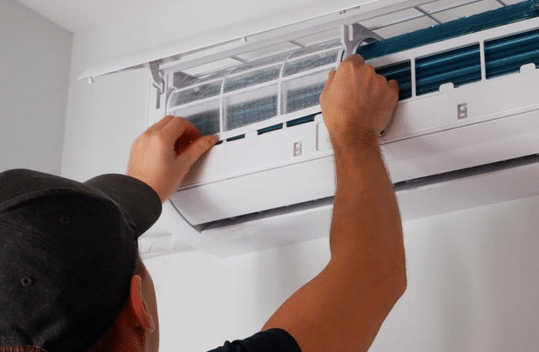
What can you expect from an AC tune-up? What will the HVAC professional actually do to your AC system during a routine visit?
A series of checks, tests and other procedures will ensure your AC is performing as it should and remains in tip-top condition — or, if not, flag what needs repairing or even replacing.
Generally, a professional tune-up will include the following six or seven procedures:
STAY COOL ALL YEAR ROUND WITH ONE WAY AIR…
The team at One Way Air installs, services, and repairs all types of air conditioning systems in Southwest Florida. Get in touch with us here for a quote or call 239-233-4356 in emergencies.
Cleaning/changing air filters
The most basic tune-up step is to clean or change air filters. Professionals will normally do this simple task more thoroughly than a DIY job — and will also flag if the filters need changing.
Both the evaporator coils and condenser coils are usually cleaned at the same time as part of a comprehensive tune-up. So, ideally, you should clean your evaporator coils every 6-12 months or, in sub-tropical areas or with older systems, every 3-6 months is advisable.
Condenser inspection
The condenser is first checked. This is the outdoor portion of an air conditioner, responsible for releasing heat. The cover will be removed, debris cleared from the coils and the fan thoroughly cleaned.
Refrigerant level check
The refrigerant level of your AC system should be steady unless there is a leak so this is always checked in a professional tune-up. If there is a leak, this needs to be fixed before adding refrigerant or the same issue will recur.
Electrical component inspection
If your system overheats or power fluctuations cause the electrics to go, your AC won’t work so capacitors and contactors must be checked for wear and tear.
Fan balance check
If the fan on the blower is not balanced properly, your air conditioner will not work efficiently. The airflow will be inefficient and the problem can cause wider damage to the system.
Cleaning the drain pan
As part of the cooling process, an AC system removes moisture from the air. This moisture collects in the drain pan, which must be emptied from time to time to prevent clogging — and there’s no better time than during a tune-up.
Lubrication
All mechanical equipment benefits from frequent lubrication and your AC system is no exception. Adding a little oil to the motor and fans will help to keep all the moving parts working smoothly.
What are the benefits of regular AC tune-ups?
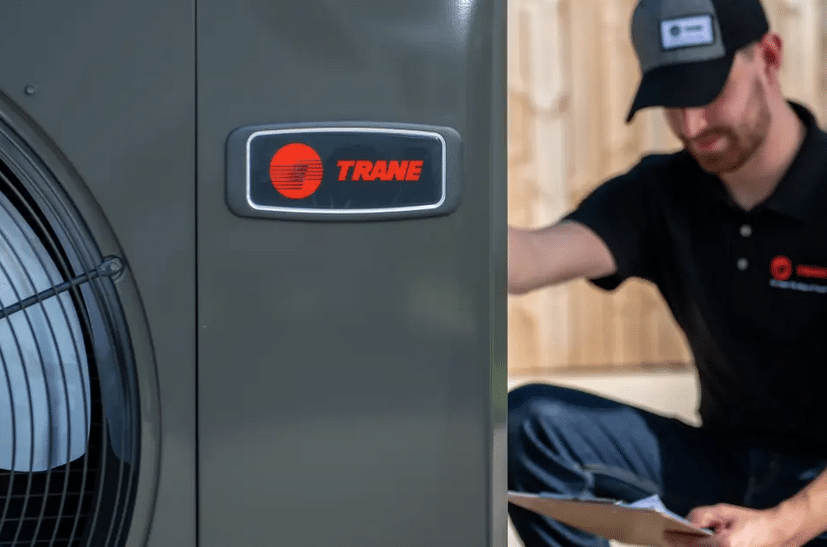
Regular AC tune-ups are not just recommended so that air conditioning companies can make money! They also save homeowners money. If you get your AC system checked by a professional at least once per year (twice is recommended), you can:
- Prolong the life of your air conditioning system
- Identify issues early — before they escalate
- Save money on costly repairs
- Enjoy extra peace of mind that your system won’t fail in the summer heat
- Enjoy better indoor air quality by reducing allergens, dust and pollutants
- Preserve system efficiency (and keep the electric bills down)
Another benefit of regular tune-ups is preserving the unit’s warranty. AC warranties often specify the need to show proof of regular maintenance to cover for repairs or replacements — this is most easily done with professional tune-up visits twice per year.
It’s best to try to pre-empt problems. With most AC maintenance service providers, you can schedule an AC tune-up online every six months. Service agreements with some providers may also include annual tune-ups.
If you haven’t scheduled a professional call out for a while, it may be time to do that — especially if your AC is showing signs that a tune-up is long overdue…
What are the main signs you need an AC tune-up?
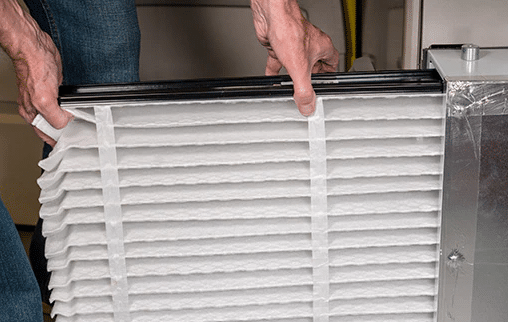
Is your AC system acting strange? If so, you may need to troubleshoot and fix the issue — or simply prevent a minor issue from becoming a major one with a tune-up.
Here are the main things that can go wrong with your AC, suggesting you need aa tune-up sooner rather than later:
1. It’s blowing warm air

Warm air is the last thing we need in the middle of a Florida summer. We got plenty enough of that!
So, it’s a pretty obvious sign that that your AC unit needs a tune-up if it’s blowing warm air out and not cooling your home to the desired temperature. It’s wasting electricity while making the home environment uncomfortable.
This could be due to many reasons, including dirty coils, clogged or old air filters, electrical issues (such as a trip or fuse) or low refrigerant levels (due to a leak). Each of these will be checked in a standard tune-up.
2. The air flow seems too weak
The air flow from the vents in your system may be cool enough but not strong enough. This means that the cool air you rely on for cooling rooms won’t consistently reach all of the right areas of the home and the temperature may become uncomfortable in some areas.
Your AC unit may be forced to work harder and harder to cool the room, which uses more electricity. The underlying problems may also lead to poorer air quality.
Air flow weakness is generally due to clogged or dirty air filters, a leaky duct or both. These issues can be checked and addressed during a standard tune-up.
3. It’s emitting strange sounds
You should know the normal sound of your air conditioner if you’ve had it a while. If it starts making abnormal sounds, it’s a sign that you need a tune-up.
Whether it’s a loud hum, buzz, bang, whistle or hiss, these sounds should not be coming from an AC unit that normally purrs along and blends in with the usual sounds of the home.
Buzzing sounds may result from blocked or partially blocked airflow as the unit tries to push air past the obstruction. Another common cause of strange sounds is if the AC unit’s fan blades are damaged and not revolving properly.
A potentially more serious problem is if the sounds are emanating from the motor — though sometimes, something as simple as a little lubrication can fix the issue.
4. Unusual odors

In particular, be aware of moldy or musty smells as this can be due to a buildup of fungus or mold within the system somewhere.
Air conditioning systems remove moisture from the air and this needs to go somewhere. Wet filters, a clog in the condensate drain line or other problems can interrupt normal function and create problems with dissipating the moisture — the cause of most unusual odors coming from AC systems.
Other pungent odors might come from old wire insulation or even trapped and decaying animals within the system. Such problems are addressed in standard tune-ups that include through cleaning.
5. Uneven cooling throughout the rooms
With a central AC system, if your home feels cool in some places but too warm in others, it could be a problem with your cooling system — or an issue with the home environment.
Usually, if your air conditioning installation was performed by an experienced HVAC professional, the relevant data about your home’s cooling requirements would have been collected before the installation. But sometimes, people cut corners and get it wrong.
Some rooms usually receive more sunlight; others may have a lack of insulation or non-airtight windows, which make the room warmer than it should be (and waste electricity).
The benefit of a professional tune-up is that these problems can be identified and potentially addressed.
6. Leaking water from the unit
Leaking water is one of the most obvious (and alarming) signs that something’s wrong.
The usual cause is a clogged drain pipe or leak in the refrigerant. Refrigerant is necessary for cooling the air and it may cause condensation in the home but it should not result in leak-like amounts of water to pool anywhere.
If it does, it’s a sure sign you need an AC tune-up so that the refrigerant issue can be resolved or the drain pipe can be unclogged.
7. Unexplained electric bill increases

When calculating the cost of air conditioning in Florida, people don’t always factor in one of the major costs over its lifetime: electricity.
Electricity is expensive enough without wasting it. A neglected AC system leads to a hidden cost in electric bills that increase without any clear reason.
If the same number of people use the same electrical devices at the same time of year (and the price has remained steady) but the electric bills go up, the AC system is often the prime culprit.
Heating, ventilation, and air conditioning can account for more than 40 percent of your total utility bills in Florida.
As an air conditioning system ages, it may naturally become less efficient but this process can be slowed with regular tune-ups. Without maintenance, the system must work harder to cool the air. Overcoming blockages, dirt and inefficient parts requires more energy — hence the rise in the monthly electric bills.
FAQs
How much does an AC tune-up cost?
The national average for simple AC tune-ups varies between $75 and $200. An AC tune-up in Florida will generally cost around $100-$150, with the higher end of the range covering thorough checkups for systems that have not been checked for a while.
Replacing refrigerant or repairs (if necessary) will add to the cost.
How often should you tune-up an AC?
Ideally, tune up your AC system with an HVAC professional twice per year: once in the spring and once in the fall (before and after the busiest times for AC).
Newer systems may be able to cope with one annual tune-up but this is running the risk of a problem going unnoticed for many months.
Are DIY tune-ups for ACs possible?
Certain routine maintenance measures are possible if you’re a DIY enthusiast and like to do as much as you can around the home yourself. However, the general rule should be to call an HVAC professional for anything beyond the most basic maintenance steps.
The following are some simple tune-up steps that you may be able to do yourself:
- Clean or change air filters: filters should be changed every three months if possible (even more regularly in the summer).
- Unclogging the drain pipe: using pan tablets (available from most plumbing supply stores).
- Removal of shrubs around the AC unit: unobstructed air flow is important for outside portions of AC units so clearing any debris, plants or shrubs from the vicinity is sensible DIY maintenance.
Get a professional AC tune-up

If you neglect to tune up your AC, it will definitely let you know at some point. Before that happens, get in the habit of booking regular maintenance checks so that you avoid unnecessary problems and costs and keep your cooling system running smoothly all year round.
if you’re in Fort Myers or the surrounding areas of SWFL make sure that you pre-empt the warning signs of AC problems by scheduling a tune-up with the team at One Way Air. Call us today at 239-233-4356 to discuss your AC maintenance needs.

